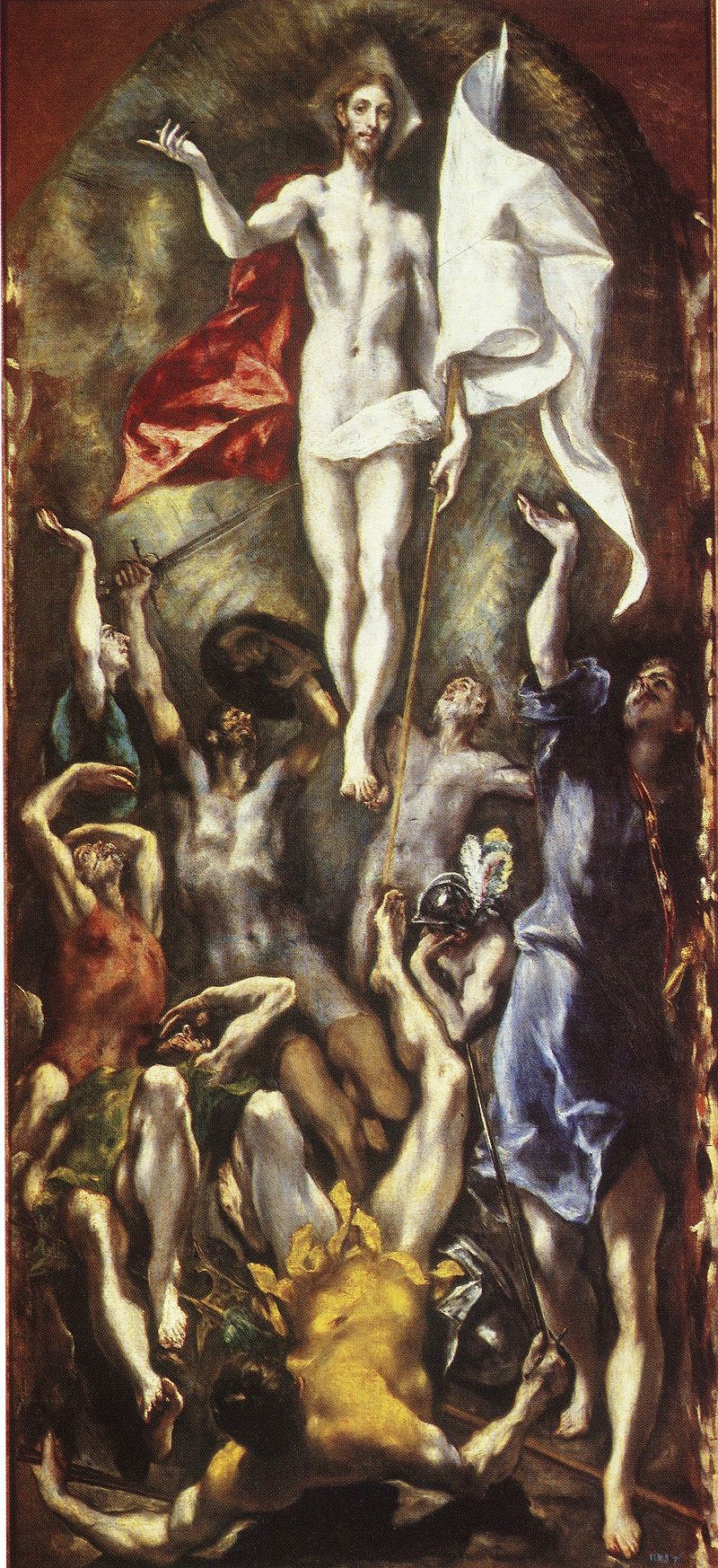 |
| El Greco |
2
|
V/NV
|
Tunc replétum est gáudio os nostrum: * et lingua nostra exsultatióne.
|
JH
| Tunc implebitur risu os nostrum, et lingua nostra laude :
| |
τότε ἐπλήσθη χαρᾶς τὸ στόμα ἡμῶν καὶ ἡ γλῶσσα ἡμῶν ἀγαλλιάσεως |
tunc, adv. denoting a point of time which corresponds with another; then, at that time. as a subst.
repleo, plevi, pletum, ere 2, to fill, sate, satisfy
gaudium, ii,, joy, gladness, delight
os, oris, n., the mouth.
lingua, ae, , the tongue; language, speech, tongue; plan, council. .
exsultatio, onis, joy, rejoicing, exultation
DR
|
Then was our mouth filled with gladness; and our tongue with joy.
|
Brenton
|
Then was our mouth filled with joy, and our tongue with exultation:
|
Grail
|
Then was our mouth filled with laughter, on our lips there were songs.
|
MD
|
Then our mouth was filled with gladness, and our tongue with jubilation.
|
RSV
|
Then our mouth was filled with laughter, and our tongue with shouts of joy;
|
Coverdale
|
Then was our mouth filled with laughter, and our tongue with joy.
|
Knox
|
in every mouth was laughter, joy was on every tongue.
|
Then means when the coming of the Lord Saviour, as has now been said, transformed our captivity into joy, our vices into virtues, our ignorance into knowledge of things divine, our death into eternal life, so that our mouth was rightly filled with gladness, and our tongue with joy, for such blessings were bestowed on us by the Lord's gift. Here mouth describes the hidden depth of the heart, where joys are first sown and sprout, and through the office of the tongue burst out into a harvest of words. It is the mouth which is referred to in: Taste, and see that the Lord is good!1 Even though his lips are closed, he cries out to the Lord, and the utterance of his remorseful heart is effectively heard, though his mouth is inactive.St Robert Bellarmine urges us always to show our joy:
this selfsame unspeakable consolation is always felt by those who are seriously converted to God, and, despising the hopes of this world, and abandoning all desire for the goods of this world, "direct their steps in the path of peace."
They know the value of being rescued from the captivity of the devil, from the depths of the pit, and the being prepared for the enjoyment of true liberty and everlasting peace, through the call and the guidance of the Almighty. Interior joy will not fail to show itself externally, which it does by the expression of joy on the countenance and gladness on the tongue.Rejoicing, he argues, is the proper reaction to God's action:
Rejoicing at liberation from captivity is no slight contribution to a change for the better. And who, he asks, does not rejoice at it? Their forebears, when liberated from Egypt and transferred from that awful slavery to freedom, under the influence of extreme ingratitude murmured in the midst of the very benefits, were disgruntled, indignant, and maintained their grief. This is not true of us, they claim: we rejoice and exult.
Psalm 125 (126)
Vulgate
|
Douay-Rheims
|
Canticum graduum.
| |
1 In converténdo Dóminus captivitátem Sion: * facti sumus sicut consoláti:
|
When the Lord brought back the captivity of Sion, we became like men comforted.
|
2 Tunc replétum est gáudio os nostrum: * et lingua nostra exsultatióne
|
2 Then was our mouth filled with gladness; and our tongue with joy.
|
3 Tunc dicent inter Gentes: * Magnificávit Dóminus fácere cum eis.
|
Then shall they say among the Gentiles: The Lord has done great things for them.
|
4 Magnificávit Dóminus fácere nobíscum: * facti sumus lætántes.
|
3 The Lord has done great things for us; we have become joyful.
|
5 Convérte, Dómine, captivitátem nostram, * sicut torrens in austro.
|
4 Turn again our captivity, O Lord, as a stream in the south.
|
6 Qui séminant in lácrimis, * in exsultatióne metent.
|
5 They that sow in tears shall reap in joy.
|
7 Eúntes ibant et flebant, * mitténtes sémina sua.
|
6 Going they went and wept, casting their seeds.
|
8 Veniéntes autem vénient cum exsultatióne, * portántes manípulos suos.
|
7 But coming they shall come with joyfulness, carrying their sheaves.
|
Gloria Patri et Filio et Spiritui Sancto.
|
Glory be to the Father, and to the Son, and to the Holy Ghost
|
Sicut erat in principio, et nunc, et semper, et in saecula saeculorum. Amen.
|
As it was in the beginning, is now, and ever shall be, world without end. Amen.
|
And the next part in this series covers verses 3&4 of Psalm 125.

